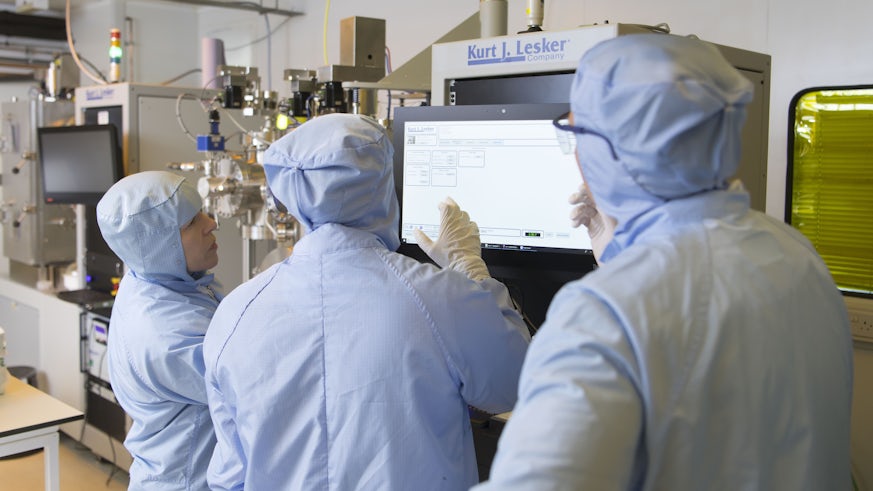Cardiff helps deliver lasers for precision timing
29 March 2021

Cardiff University has teamed up with partners to successfully deliver commercial grade Vertical-Cavity Surface-Emitting Lasers (VCSELs) for atomic clock applications.
The Innovate UK funded KAIROS project brings together a consortium of UK partners to develop the pre-production prototype of a miniaturised caesium clock that will power 5G networks.
The precision clock could be used in a wide range of future applications including reliable energy supply, safe transport links, mobile communications, data networks and electronic financial transactions.
Establised in 2018, KAIROS has successfully demonstrated a UK sovereign capability bringing together laser design, epitaxial materials and device fabrication.
The Institute for Compound Semiconductors explained.
The single-mode VCSELs show ultra-high mode-stability operating at 894nm, the wavelength corresponding to the D1 transition line of Cs used in high accuracy (10e-13) clocks.
Demonstrated capability includes a suite of proprietary laser design and simulation models at Cardiff University and the Institute for Compound Semiconductors (ICS) - which aims to position Cardiff as the European leader in compound semiconductors, providing cutting-edge facilities that help researchers and industry work together.
Professor Peter Smowton, Director of the Institute of Compound Semiconductors, said: “VCSEL technologies are a key focus area for Cardiff University and we are in a position to support industry with prototyping novel VCSEL devices to complement our device simulation and design expertise for highly-specialised structures.”
ICS recently established a multi-wafer 6” VCSEL fabrication pilot-line to further support the partners’ collective capability in high-performance VCSEL design, fabrication and testing.
Having met stringent target performance specifications required for atomic clock applications, the supply chain partners are preparing to service future opportunities for high-specification VCSELs through several parallel activities, one of which is the QFoundry project to upscale the manufacturability and reliability of quantum photonic components (QPCs), also part-funded by the UK National Quantum Technologies Challenge.
Wyn Meredith, Director of the Compound Semiconductor Centre (CSC) - Europe's new home for product, services and skills development in compound semiconductor technologies – said: “Whilst high stability, single-mode VCSEL operation is required for numerous emerging applications, the concern over reliability and cost is forcing system integrators to compromise on performance. Following solid groundwork on uniformity improvements for Kairos VCSEL structures, we are confident that our collective capabilities across the VCSEL supply chain will provide a pathway towards high-end VCSEL solutions for new applications in quantum, sensing and industrial markets.”
The ICS is due to move to the bespoke Translational Research Hub on Cardiff Innovation Campus in 2022.
Here, the Institute will further develop industrial collaboration for product development to prototyping, including advanced device fabrication, measurement and characterisation, and small scale pilot production, providing academic expertise for innovative business solutions.
